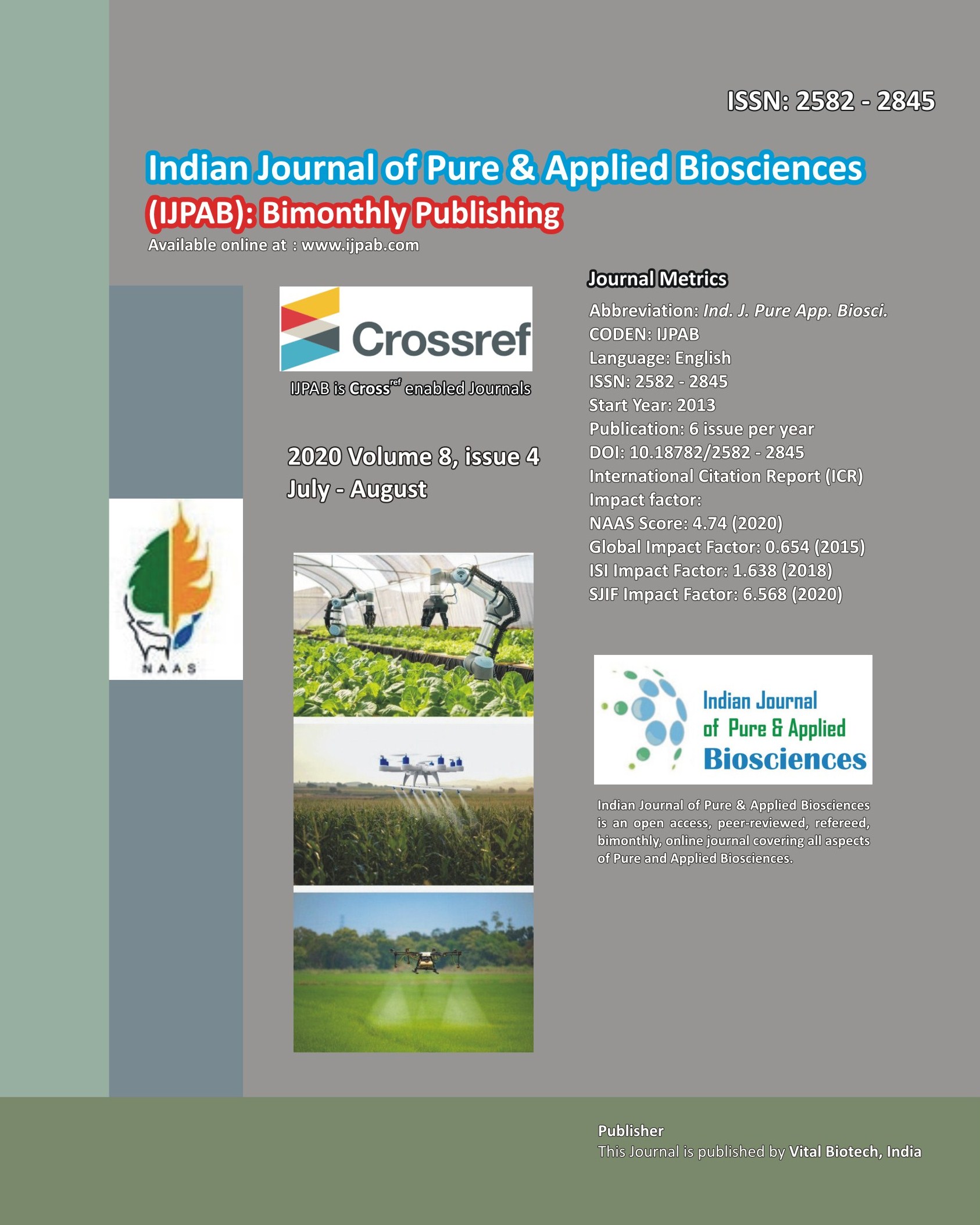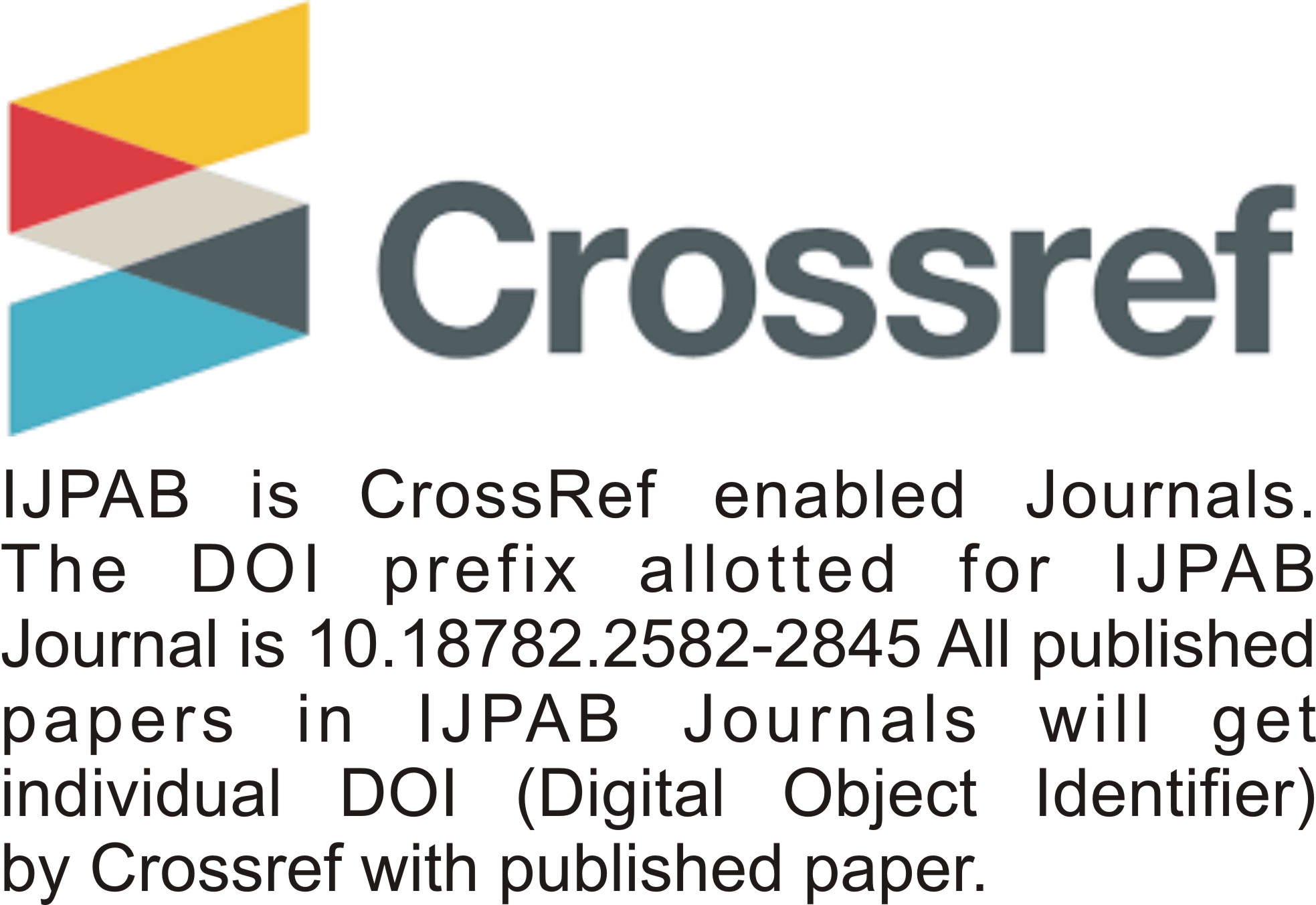
-
No. 772, Basant Vihar, Kota
Rajasthan-324009 India
-
Call Us On
+91 9784677044
-
Mail Us @
editor@ijpab.com
Indian Journal of Pure & Applied Biosciences (IJPAB)
Year : 2020, Volume : 8, Issue : 4
First page : (363) Last page : (369)
Article doi: : http://dx.doi.org/10.18782/2582-2845.8255
Record of Ptyomaxia syntaractis Turner, 1904 (Lepidoptera: Pyralidae) as a Major Insect Pest of Avicennia marina and Detection of Bacterial Pathogen Myroides odoratus in the Mangroves of Maharashtra
R. Raja Rishi1* ![]() , P. Swetha2 and R. Sundararaj3
, P. Swetha2 and R. Sundararaj3
1Scientist D, 2Research Scholar, 3Scientist G and Head,
Forest Protection Division, Institute of Wood Science and Technology,
Bengaluru – 560 003 (Karnataka) India
*Corresponding Author E-mail: iwst.rajarishi@gmail.com
Received: 25.06.2020 | Revised: 3.08.2020 | Accepted: 10.08.2020
ABSTRACT
Ptyomaxia syntaractisTurner, causes regular defoliation on the mangroves of Mumbai region particularly in Airoli creek of Navi Mumbai areas of Maharashtra. This pest is prevalent during the post monsoon period and infesting Avicennia marina severely in Airoli mangroves. The assessment of intensity of infestation revealed 64 to 70% infestation from September to November. The biology of the pest is studied in the laboratory. Also natural occurrence of the bacterial pathogen Myroides odoratus is observed for the first time on P. syntaractis in field condition. The pathogen was identified carrying out the method Genomic DNA isolation, PCR amplification using universal 16s rDNA primers and DNA sequencing. Pathogenicity test confirmed the infectivity of the bacteria on P. syntaractis in laboratory condition.
Key words: Ptyomaxia syntaractis, Mangroves, Pathogen, Intensity, Assessment
Full Text : PDF; Journal doi : http://dx.doi.org/10.18782
Cite this article: Rishi, R.R., Swetha, P., & Sundararaj, R (2020). Record of Ptyomaxia syntaractis Turner, 1904 (Lepidoptera: Pyralidae) asa Major Insect Pest of Avicennia marina andDetection of Bacterial Pathogen Myroides odoratus in the Mangroves of Maharashtra, Ind. J. Pure App. Biosci. 8(4), 363-369. doi: http://dx.doi.org/10.18782/2582-2845.8255

